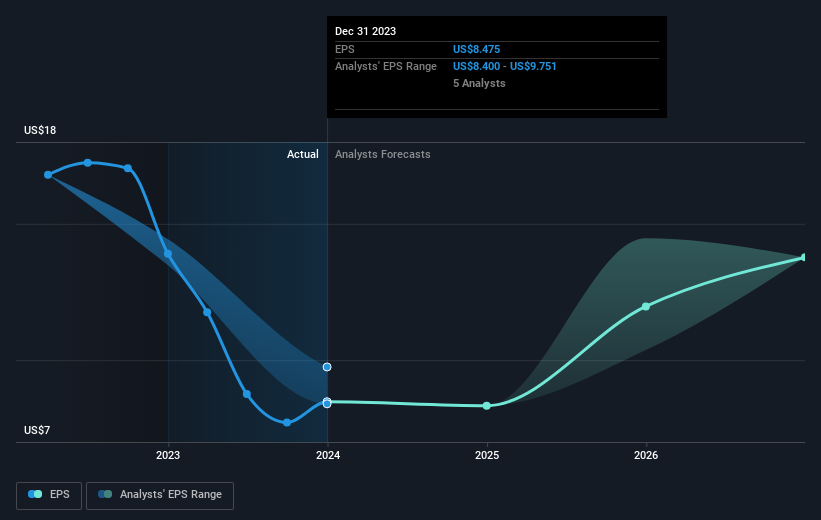Stock Analysis
- United States
- /
- Consumer Durables
- /
- NasdaqGS:LGIH
LGI Homes (NASDAQ:LGIH) stock falls 6.5% in past week as three-year earnings and shareholder returns continue downward trend

For many investors, the main point of stock picking is to generate higher returns than the overall market. But the risk of stock picking is that you will likely buy under-performing companies. Unfortunately, that's been the case for longer term LGI Homes, Inc. (NASDAQ:LGIH) shareholders, since the share price is down 48% in the last three years, falling well short of the market return of around 15%. The more recent news is of little comfort, with the share price down 22% in a year. The falls have accelerated recently, with the share price down 24% in the last three months.
After losing 6.5% this past week, it's worth investigating the company's fundamentals to see what we can infer from past performance.
See our latest analysis for LGI Homes
In his essay The Superinvestors of Graham-and-Doddsville Warren Buffett described how share prices do not always rationally reflect the value of a business. By comparing earnings per share (EPS) and share price changes over time, we can get a feel for how investor attitudes to a company have morphed over time.
During the three years that the share price fell, LGI Homes' earnings per share (EPS) dropped by 13% each year. This reduction in EPS is slower than the 20% annual reduction in the share price. So it seems the market was too confident about the business, in the past. The less favorable sentiment is reflected in its current P/E ratio of 10.64.
The company's earnings per share (over time) is depicted in the image below (click to see the exact numbers).

This free interactive report on LGI Homes' earnings, revenue and cash flow is a great place to start, if you want to investigate the stock further.
A Different Perspective
Investors in LGI Homes had a tough year, with a total loss of 22%, against a market gain of about 24%. However, keep in mind that even the best stocks will sometimes underperform the market over a twelve month period. On the bright side, long term shareholders have made money, with a gain of 6% per year over half a decade. It could be that the recent sell-off is an opportunity, so it may be worth checking the fundamental data for signs of a long term growth trend. While it is well worth considering the different impacts that market conditions can have on the share price, there are other factors that are even more important. Consider for instance, the ever-present spectre of investment risk. We've identified 3 warning signs with LGI Homes (at least 1 which is significant) , and understanding them should be part of your investment process.
Of course, you might find a fantastic investment by looking elsewhere. So take a peek at this free list of companies we expect will grow earnings.
Please note, the market returns quoted in this article reflect the market weighted average returns of stocks that currently trade on American exchanges.
Valuation is complex, but we're helping make it simple.
Find out whether LGI Homes is potentially over or undervalued by checking out our comprehensive analysis, which includes fair value estimates, risks and warnings, dividends, insider transactions and financial health.
View the Free AnalysisHave feedback on this article? Concerned about the content? Get in touch with us directly. Alternatively, email editorial-team (at) simplywallst.com.
This article by Simply Wall St is general in nature. We provide commentary based on historical data and analyst forecasts only using an unbiased methodology and our articles are not intended to be financial advice. It does not constitute a recommendation to buy or sell any stock, and does not take account of your objectives, or your financial situation. We aim to bring you long-term focused analysis driven by fundamental data. Note that our analysis may not factor in the latest price-sensitive company announcements or qualitative material. Simply Wall St has no position in any stocks mentioned.
About NasdaqGS:LGIH
High growth potential with mediocre balance sheet.

